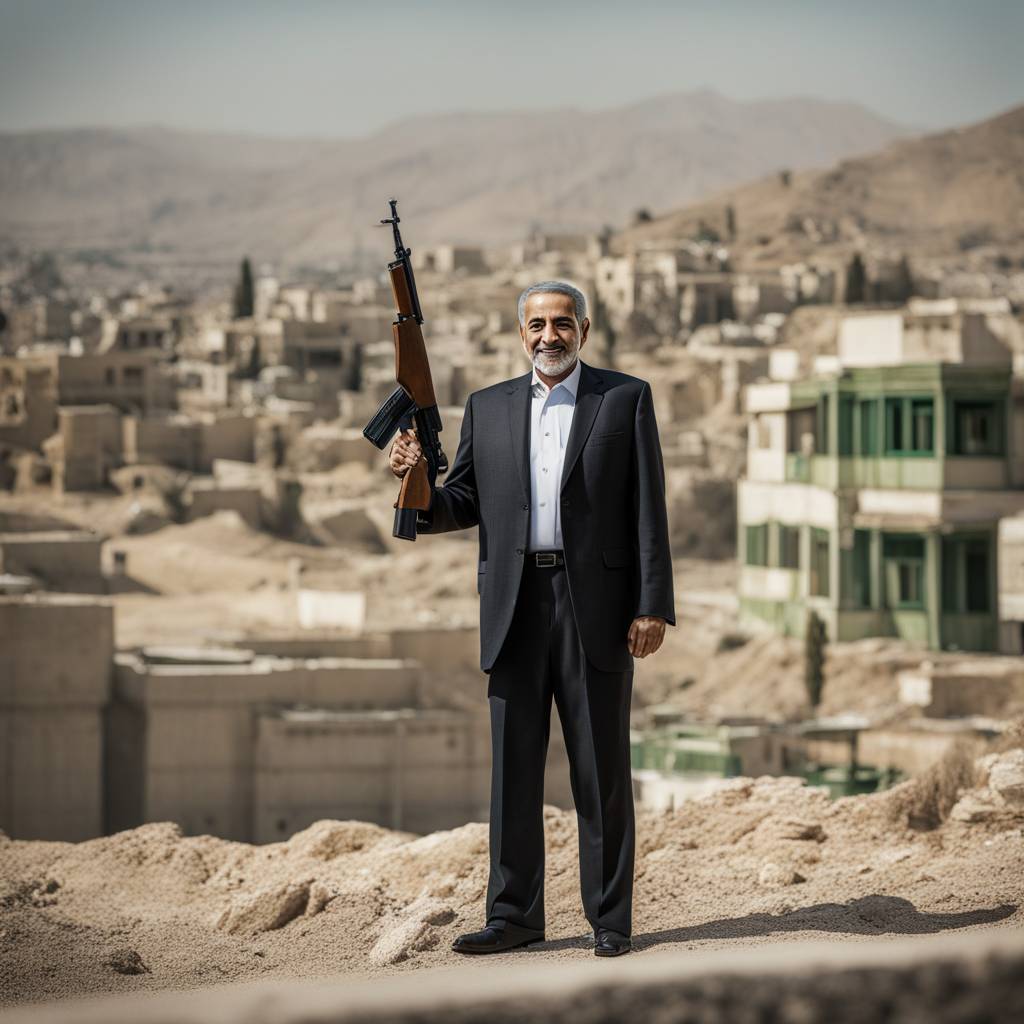Iran has been operating a clandestine smuggling route across the Middle East in an effort to deliver weapons to Palestinians in the Israeli-occupied West Bank. The ultimate goal of this operation, according to officials from the United States, Israel, and Iran, is to stir unrest against Israel by providing weapons to the Palestinians in the region. The covert operation has raised concerns that Iran is attempting to escalate tensions in the long-standing conflict between Israel and Iran, with a specific focus on turning the West Bank into a new flashpoint. This heightened conflict comes on the heels of Iran vowing to retaliate for an Israeli strike that killed seven Iranian armed forces commanders.
According to senior security and government officials with knowledge of the smuggling route, weapons are smuggled from Iran through Iraq, Syria, Lebanon, Jordan, and Israel before reaching the West Bank. The arms are transferred among an international cast of individuals, including members of criminal gangs, extremist militants, soldiers, and intelligence operatives. Bedouin smugglers play a crucial role in moving the weapons across the border from Jordan into Israel, facilitating the transportation of the weapons to the West Bank.
The smuggling operation to the West Bank began about two years ago using existing routes established for smuggling other contraband. While the exact number of weapons that have been successfully brought into the territory remains unclear, analysts suggest that the majority are small arms. However, there are reports of advanced weapons being smuggled, including antitank missiles and rocket-propelled grenades, posing a significant challenge to Israel’s defenses against close-range attacks on civilian and military targets.
The smuggling activities have intensified following an attack by Hamas on Israel on October 7, leading to a crackdown by Israeli security forces across the West Bank. This crackdown is part of Israel’s counterterrorism efforts against armed factions in the region. The raids have resulted in hundreds of Palestinian casualties, with human rights groups raising concerns about unfair detentions and excessive detainments of Palestinians, many of whom may not have genuine militant ties.
Amidst escalating tensions, Fatah, the Palestinian faction controlling the Palestinian Authority, accused Iran of exploiting Palestinians for its own interests by spreading chaos in the West Bank. However, Iran’s mission at the U.N. emphasized the importance of Palestinians engaging in armed resistance against Israel. The conflict between Israel and Iran, which previously remained largely covert, has recently erupted into more public conflict with airstrikes targeting key figures and nodes in the smuggling route.
Iran is utilizing established criminal networks and militant allies to facilitate the smuggling of weapons into the West Bank through routes in Jordan and Lebanon. These routes involve transferring the weapons from Syria to Jordan and then to Bedouin smugglers who transport them to criminal gangs in Israel. Another route through Lebanon presents challenges due to increased patrolling by Israeli military and U.N. peacekeepers. Iranian operatives from the Quds Force play a crucial role in coordinating the smuggling efforts, with Israeli airstrikes targeting these operatives as part of the ongoing shadow war between the two countries.


